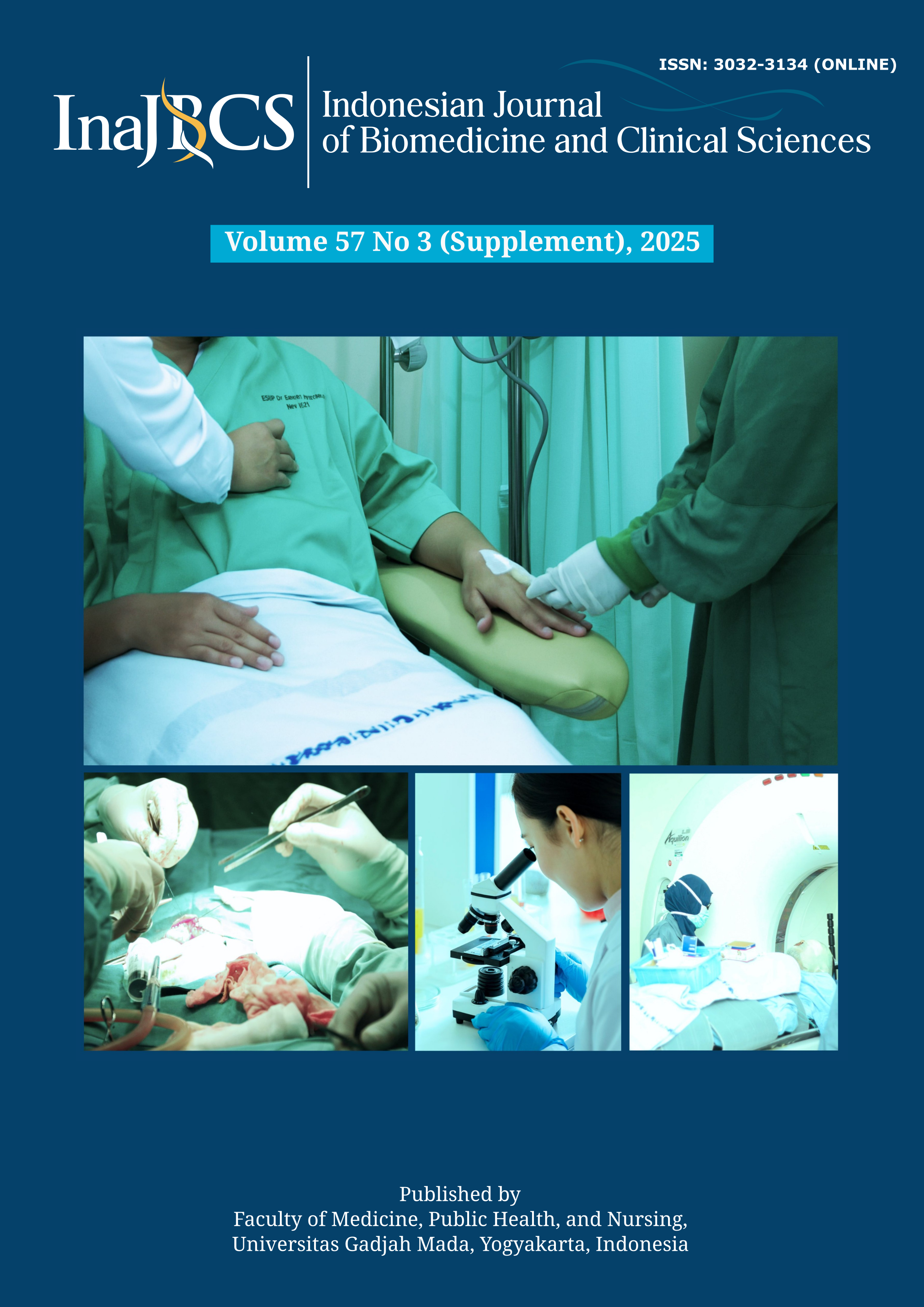Personalized and multidisciplinary management of advancedstage lung adenocarcinoma with paraneoplastic syndrome: a case-based perspective
Abstract
Lung adenocarcinoma is the most common subtype of non-small cell lung cancer (NSCLC), accounting for approximately 40% of cases globally, often occurs at an advanced stage. In recent years, the paradigm has shifted toward individualized cancer treatment, emphasizing molecular profiling to guide therapy. A 32-year-old male with history of heavy smoking since adolescence (Brinkman Index 640), who developed progressive dyspnea, productive cough, hoarseness, dysphagia, arthralgia, and a 17-kg weight loss. Physical examination revealed anemia, severe malnutrition (BMI 15), and hypoxemia. Chest CT demonstrated a large right lung mass (11.5 × 11.6 × 14.6 cm) extending from the upper to lower lobes, with pleural effusion. Histopathology confirmed adenocarcinoma. Immunohistochemical staining for P40 was negative, excluding squamous cell carcinoma. TTF-1 IHC was not performed due to limited laboratory resources. Laboratory results showed reactive thrombocytosis (platelets 1,025,000/mm³) likely due to paraneoplastic syndrome. Molecular testing (EGFR, ALK, PD-L1) was planned to assess eligibility for targeted therapy or immunotherapy. Given the patient’s condition of respiratory compromise (ECOG 3), immediate systemic therapy was required. In accordance with NCCN and ESMO recommendations, platinum-based chemotherapy was initiated while awaiting biomarker results. The regimen consisted of carboplatin at AUC 5 (dose adjusted to ~400 mg IV) and paclitaxel (dose adjusted to ~188 mg IV) administered on day 1 of a 21-day cycle, with a 20% dose reduction due to severe malnutrition. Intensive nutritional support (30–35 kcal/kg/day and 1.2–1.5 g protein/kg/day) and corticosteroids (methylprednisolone 24–32 mg/day) were administered to improve treatment tolerance and control paraneoplastic arthritis. This strategy aimed to achieve rapid tumor burden reduction, symptom relief, and preservation of performance status, thereby maintaining eligibility for subsequent targeted or immunotherapy once molecular results are obtained. This case highlights the importance of timely decision-making and individualized treatment strategies in managing advanced lung cancer under resource limitations.






